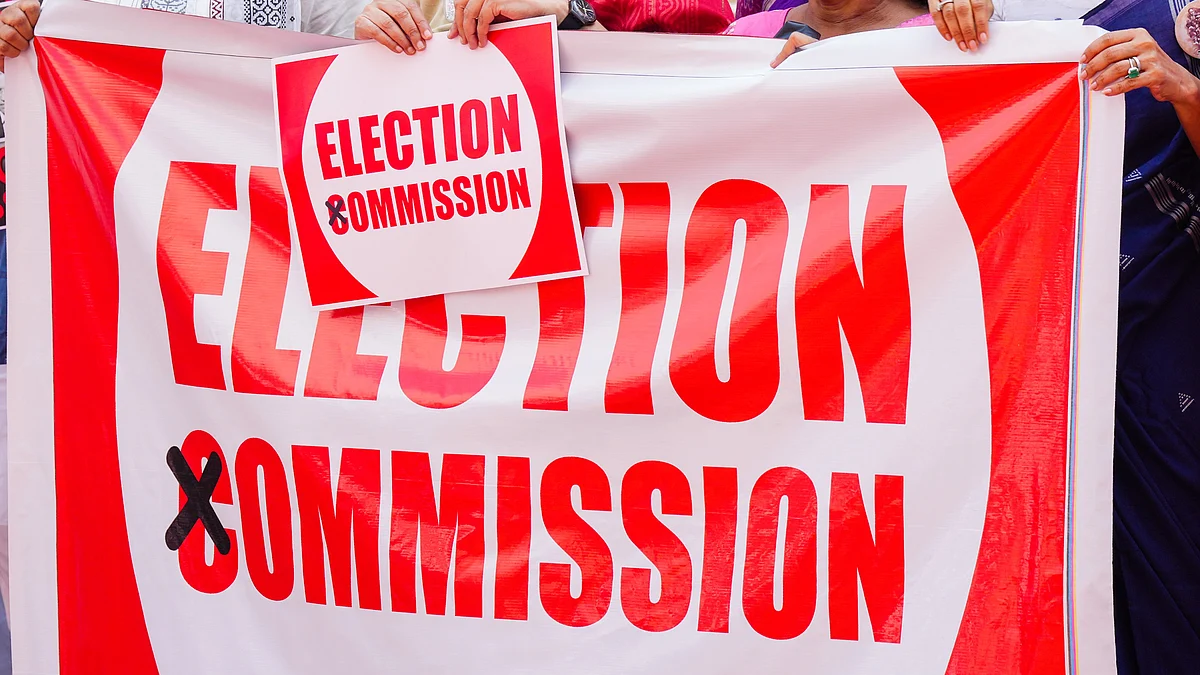SIR: Did the Election Commission lie to the Supreme Court?
Responding to an RTI query, the ECI claims it has no information of any independent appraisal committee — which it told the court triggered the special intensive revision of electoral rolls!

In another curious twist to the SIR (special intensive revision) of electoral rolls being conducted in Bihar, the Election Commission has denied any knowledge of an ‘independent appraisal committee’ — which it had claimed in its affidavit actually triggered the exercise!
So, is the Commission lying now, or did it lie to the Supreme Court — that is the question.
RTI applications filed by transparency activist Anjali Bhardwaj and media outlet The Reporters’ Collective elicited the following response from the ECI: The commission claimed that it had no information about the independent appraisal committee and that no files, minutes of meetings or file notings were available to show how the decision to conduct a nationwide SIR was initiated, discussed, finalised and approved, or when.
When asked for a copy of the orders or guidelines pertaining to the 2003 rolls revision in Bihar, the ECI provided the 2025 guidelines and notification instead.
Nitin Sethi, trustee of the Reporters’ Collective Trust, notes that while a constitutional body directed nearly 80 million voters in Bihar to produce documents to establish their citizenship and voting rights within 30 days, it refuses to share its own records with the people.
Transparency activist Anjali Bhardwaj points out that similar records, files and notings were asked for in the electoral bonds case — and both the finance department and the State Bank of India had obliged. Why, then would the ECI refuse to share the details and what is it trying to hide, she asked.
“The RTI Act also requires the ECI to provide requested documents to citizens within 30 days, the period allowed by the ECI to the voters of Bihar. However, in response to our RTI application, the ECI provided a weblink to a back-end page on its website, which cannot be publicly accessed. These, the ECI claimed, were ‘comprehensive instructions’ dated 14 July 2025, which were self-explanatory, but we could not access them,” writes Sethi on the Reporters’ Collective website.
“We specifically asked the ECI to provide the names and numbers of files containing discussions and deliberations that led to the SIR orders in June and July 2025. The ECI failed to acknowledge the existence of such files and records, despite being legally obligated to maintain them meticulously. Under the RTI Act, withholding these records from citizens or destroying them is illegal,” notes Sethi.
Paradoxically, in a lengthy and detailed affidavit spanning 800 pages that the ECI submitted to the Supreme Court, it had claimed to have constituted an ‘independent appraisal committee’ to look into the complaints of mistakes and irregularities in preparing the electoral rolls received from political parties. The committee’s report and recommendations were what prompted the commission to undertake the mammoth exercise in Bihar and to extend it across the country.
The response to the RTI, however, suggests that there is no such report — or, if there is one, the ECI is refusing to acknowledge its existence.
The ‘independent appraisal committee’ was mentioned in the affidavit to answer persistent queries about the need to conduct an SIR in a short period of 2 months and so close to the assembly elections in Bihar, due in October–November 2025.
Now that the ECI is refusing to admit to the existence of the committee and its report, the needle of suspicion points to the union government. Did the government pressurise the ECI to conduct an SIR?
In fact, the Reporters’ Collective had filed an RTI application to the union ministry of law and justice, seeking information on whether the ECI had sought the ministry’s opinion.
It had also asked the ministry to share the complete paper trail, files, correspondence, memos, notes and presentations. The ministry in its reply claimed that it had no such information and passed on the RTI application to the Election Commission.
“On 20 August 2025, the ECI responded, stating it had no information available. If accurate, this suggests the SIR proceeded without legal consultation,” noted Sethi.
Also Read: When ECI lies came thick and fast
Follow us on: Facebook, Twitter, Google News, Instagram
Join our official telegram channel (@nationalherald) and stay updated with the latest headlines
